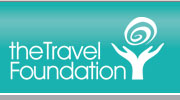Increasing Livelihoods Options for Maya Communities and Species Conservation through ‘melipona’ Honey Production
Project location: Mexico, Cancun
Project start date: January 2010 -
Project end date: June 2010
Project number: 2009-57
Beneficiary: Travel Foundation
Focus of feasibility study
The feasibility study looked at both the technical side of things such as current practice in handling bees and harvesting etc and a more market research focus looking at which possible honey products may appeal to the tourism market and whether the group Mush Meya has the capacity to develop any one of these products.
Main areas of focus:
• Review of current production methods
• Review of current state and welfare of the bees and their colonies
• Review of natural environment including flora needed for bees to feed, reproduce, pollinate and produce honey to maximum capacity
• Review of current equipment and infrastructure and what else is needed
• Market research with hotels, spa resorts, customers and the general public
Results and recommendations from the feasibility study
After extensive investigations it was concluded that the Melipona bee is extremely important for the Maya culture and religion. This particular bee which is an endangered species is more selective than other bees in the plants it feeds from and as a result of deforestation, the production of charcoal in the community, the lack of rainfall, and the invasion of predators such as ants and beetles, the bees have drastically declined in population. It was also discovered that although the group Mush Meya is extremely passionate about protecting and keeping the bees, they do not have sufficient knowledge or expertise in appropriate handling methods to look after the bees properly.
As a result the feasibility study made the following recommendations to Travel Foundation:
Recommendations
1) The first stage of any Travel Foundation project should focus on planting the flora needed to support the Melipona bee such as Guava, Lippia flower and Cedar.
2) A water canal should be constructed around hive area to protect bees from predators such as ants and beetles.
3) A comprehensive training and capacity building programme should be developed for and with the group Mush Meya to help them learn better methods for caring for the bees, management of hives and harvesting methods etc.
4) An additional 50 hives with bee colonies should be sourced to increase pollination and therefore honey yield
5) Further equipment for extraction of the honey, storing honey etc should be bought to provide group with everything they need
It was also concluded through the market research that the current production capacity of the group at the moment is too small a quantity to be able to compete in terms of bottled honey for the tourism industry and the most viable valued-added product which could be produced with present honey yields would be Melipona bee wax candles. Candles do not require huge infrastructure or equipment to produce nor do they require rigid health and safety measures put in place the same as any consumerable products or spa products.
It was suggested that the development of any value added product should be secondary however to the conservation element.
Next Steps
Based on the recommendations of the feasibility study the Travel Foundation has developed and drawn up a proposal for the needed conservation project to preserve the bees and ultimately to increase honey yield volumes.
Our team in Mexico has already secured local support for the project such as the donation of all plants and trees, soil and fertilizer and the manpower to plant them (courtesy of Viveros y Jardineria Tolok) and for the running of 4 comprehensive training and capacity building workshops (courtesy of the university of Tizimin).
We are now looking for another partner to cover the costs of the additional equipment needed, the 50 additional hives and colonies and project management costs. A total of £16,401 GBP.
The conservation project is estimated to take between 5-6 months for implementation of activities- planting, running of workshops etc with monitoring and data collection on the subsequent 4 honey harvests (period of 2 years) to measure bee numbers and honey yield.
The aim is by stabilizing bee populations through the provision of appropriate plants, pest control and best practice we can increase honey yields and therefore provide the group Mush Meya with greater opportunity to develop value-added products for the tourism industry. This would be very much phase II of the overall aim.




